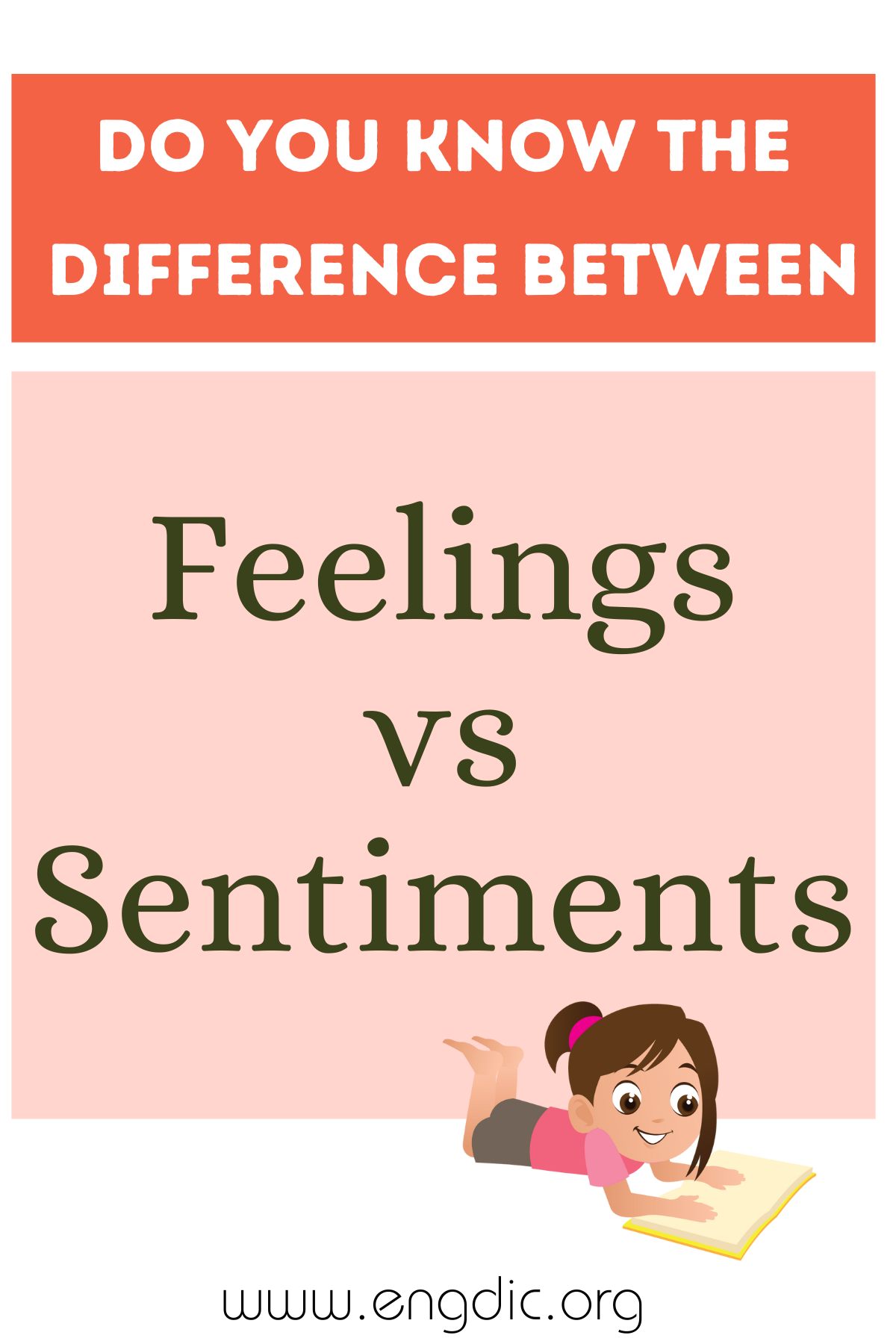The key difference between feelings and sentiments lies in their nature and duration. Feelings are immediate, emotional responses to stimuli, often visceral and intense. They can be fleeting, like joy or anger. In contrast, sentiments are more enduring, shaped by thoughts, past experiences, and social influences. Sentiments reflect deeper beliefs and attitudes toward something or someone, such as loyalty or patriotism. While feelings are spontaneous, sentiments are more measured and often guide long-term behavior.
Feelings: Definition, Usage, and Examples
Definition: Feelings are the emotional responses that arise spontaneously due to internal or external stimuli. They encompass a range of emotions, like happiness, sadness, anger, and fear.
Usage: Feelings often indicate immediate emotional states. For example:
- After receiving unexpected good news, John felt overwhelmed with happiness.
- Laura’s frustration was evident as she struggled to solve the puzzle.
Examples:
- Intensity: Feelings can be intense and overpowering, such as the fear felt during a dangerous situation.
- Duration: Feelings tend to be short-lived, like excitement that fades after a brief moment.
- Spontaneity: They occur instantly in response to stimuli, such as joy after meeting an old friend.
Sentiments: Definition, Usage, and Examples
Definition: Sentiments are more profound and lasting emotional attitudes influenced by personal beliefs, social norms, and cultural context. They reflect an individual’s views and predispositions toward specific ideas, objects, or people.
Usage: Sentiments are often used to describe deeper emotional attitudes. For example:
- The politician’s speech evoked strong patriotic sentiments in the crowd.
- Emma’s sentiments towards her hometown remained positive despite moving away years ago.
Examples:
- Depth: Sentiments represent deep-seated attitudes, like a sense of justice or romantic attachment.
- Duration: They persist over time, shaping one’s long-term perspectives, like a lifelong sentiment of loyalty to a cause.
- Deliberation: Unlike feelings, sentiments are more deliberate and result from thought and reflection, such as a developed sense of environmental concern.
In conclusion, while feelings reflect immediate emotional states, sentiments capture deeper, enduring attitudes shaped by thought and experience.







